API 570 – AUTHORISED PIPING INSPECTOR
Course Description API 570
Objectives
- Apply an up-to-date knowledge and skills of the latest technology in piping &
pipeline design, construction, inspection, maintenance, repair and integrity
assessment in accordance with the latest ASME and API code - Design, analyze, fabricate and install new piping and pipeline systems according to the latest revision of ASME B31 Code and have a working knowledge of the Code, how it is organized, its intent, the basis for requirements and the philosophy behind the new changes
- Inspect, maintain, repair and assess the integrity of existing (in-service) piping
and pipeline systems according to API 570 Code and recognise the causes of degradation, whether mechanically induced (pressure, vibration, fatigue, pressure transients, external damage) or due to corrosion (wall thinning, pitting, cracking) - Implement the physical phenomena which affect the design of piping and pipeline systems including the ASME formulas and other methods by which these phenomena can be analyzed to determine resulting stresses, evaluation of those stresses relative to ASME code limitations, and the methods by which piping and pipeline systems are fabricated, inspected and tested
- Identify the technical basis of the ASME and API integrity rules and apply integrity analysis techniques to make run-or-repair decisions
- Make the right decisions for the development of new piping/pipeline pigging systems, the operation of existing systems and the selection of cleaning pigs an ILI tools
Who Should Attend
Institute – ICP Examination for API 570 in September 2011 however, this course
provides an overview of all practical aspects and considerations of piping systems for those who are involved in the design, analysis, fabrication, installation, inspection, repair, pigging, rehabilitation, integrity assessment, maintenance or ownership of piping & pipeline systems. Engineers, Draftsmen, maintenance, inspection, quality assurance, and manufacturing personnel who work in the chemical, petrochemical, petroleum, utility, plastic processing, pulp and paper, and manufacturing fields will find it a time-saving means to broaden and update their knowledge of piping & pipeline systems. Those who must comply with Code requirements will benefit from the practical approach presented in this course in obtaining satisfactory and economical piping systems.
Training Methodology
70% Lectures
10% Workshops & Work Presentations
10% Practical Exercises
10% Software & General Discussions
The course instructor may modify the above training methodology before or during the course for technical reasons with no prior notice to participants
Accreditation
Reference
Course Outline
General topics in the course include Code organisation and intent pressure design, design for sustained loads including support design, flexibility analysis, equipment loads, expansion joints, supports and restraints, materials, fabrication, examination, testing, and, for existing piping inspection, maintenance, repair, rehabilitation, and mechanical integrity. Applications of these concepts, including simple hand analysis methods and computer-based analysis methods using CAESAR II, will be demonstrated. Examples of the required analysis and sources of further information will be provided.
The course covers design, fabrication, examination and testing requirements of API
570/ASME B31.3. It covers Code requirements from design, as well as standards for
inspection, integrity and repair of piping systems that have been in service, as
provided in API 570. The course covers the practical aspects of piping integrity,
maintenance and repair. Participants will be introduced to the technical basis of the
ASME and API integrity rules, and their application and exercises. The participants
will be able to recognize causes of degradation in-service, whether mechanically
induced (pressure, vibration, fatigue, pressure transients, external damage) or due to
corrosion (wall thinning, pitting, cracking), and apply integrity analysis techniques to
make run-or-repair decisions.
The course provides a working knowledge of the Code, how it is organized, its intent, the basis for requirements, including both design and construction (fabrication,
erection and testing) aspects. It provides a foundation of knowledge necessary for
those responsible for assuring the mechanical integrity of existing systems, as well
as those responsible for designing and constructing new systems. The participants
will become knowledgeable in the technical basis and application of ASME B31.3,
API 570.
Each session will be conducted in a lecture/discussion format designed to provide
intensive instruction and guidance on understanding Code requirements, and also on
developing an awareness of other considerations in the design, analysis, fabrication,
installation, inspection, maintenance, repair and integrity assessment of piping and
pipeline systems which is not covered by the Codes. There will also be a
demonstration of computer software that can be used to assist in piping analysis.
Participants should bring calculators and Lap Top computers for working sample
problems. Participants may wish to bring copies of the codes if they have copies
available, but the course is designed such that it is not necessary for the participants
to have copies of the Codes for reference.
